22+ Employee Performance Review Examples to Download
Employee performance reviews play a crucial role in assessing and enhancing the productivity and growth of an organization’s workforce. By providing valuable feedback, these reviews foster professional development, align employee goals with organizational objectives, and drive overall performance. In this article, we will explore the concept of auxiliary verbs, guide you through the process of conducting an effective employee performance review, address common FAQs, and conclude with a fresh perspective on the transformative power of this essential management tool.
1. Quarterly Employee Performance Review
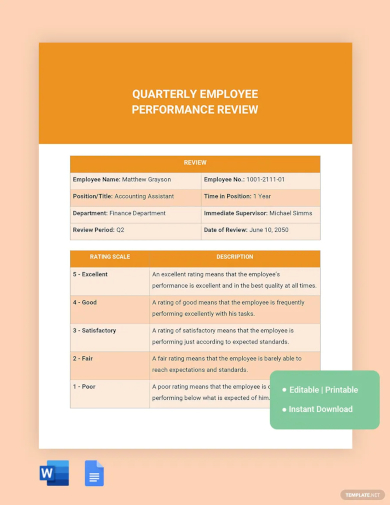
2. Restaurant Employee Performance Review Form
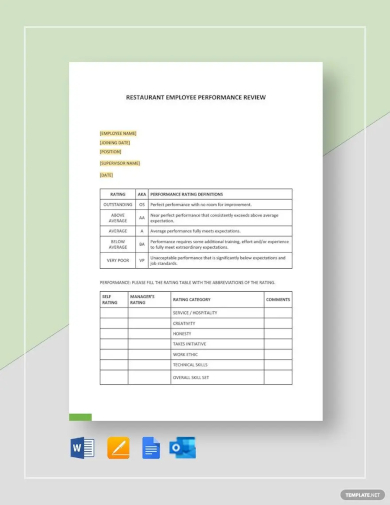
3. Mid-year Employee Performance Review
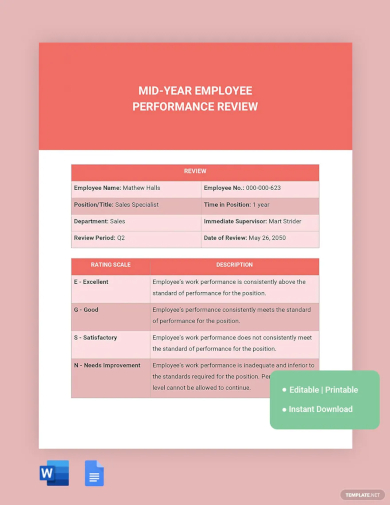
4. Annual Employee Performance Review
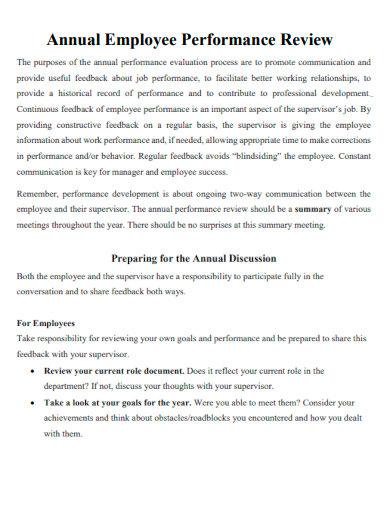
cpp.edu
5. Formal Employee Performance Review
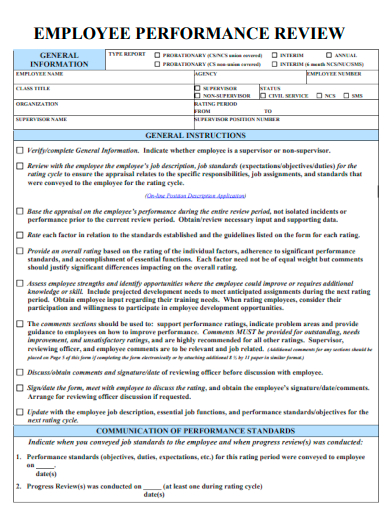
clarion.edu
6. Employee Performance Review Fill-in-the-Blank Activity
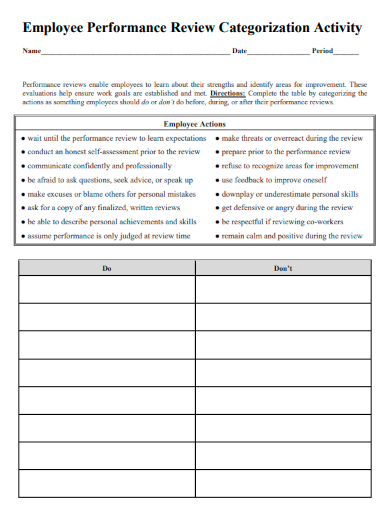
lawrence.edu
7. Employee Effective Performance Review
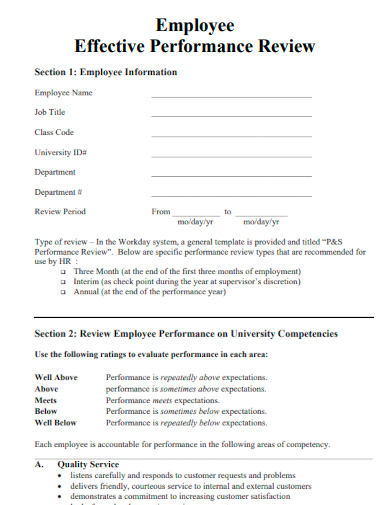
hr.iastate.edu
8. Employee Performance Review Instructions
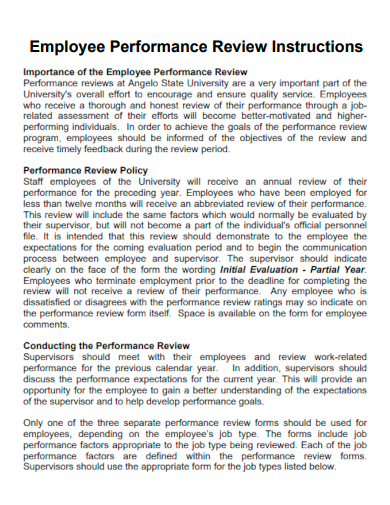
angelo.edu
9. Employee Performance Review Discussion
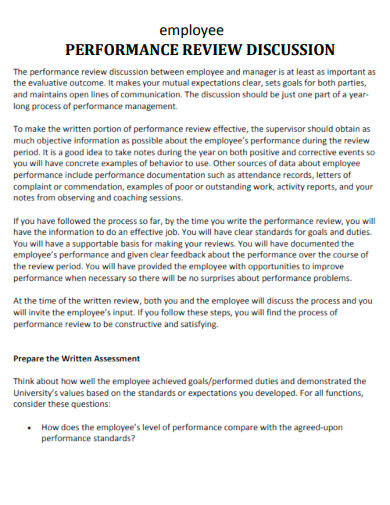
srpln.msstate.edu
10. Employee Performance Review Process
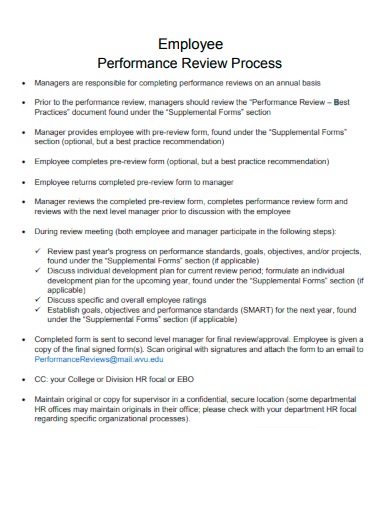
wvu.edu
11. Basic Employee Performance Review
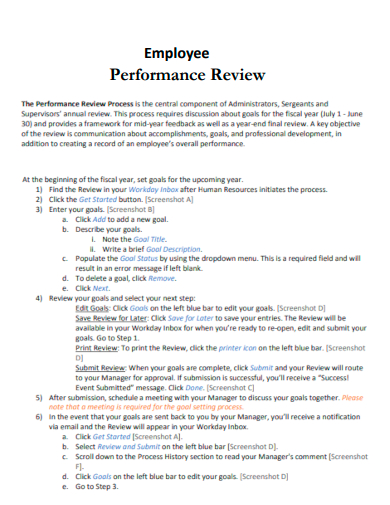
vassar.edu
12. Employee Performance Review Evaluation
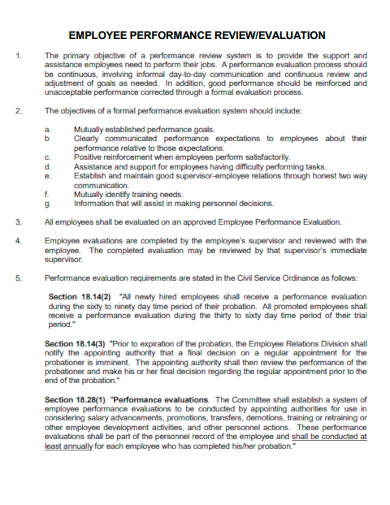
dane.com
13. Modern Employee Performance Review
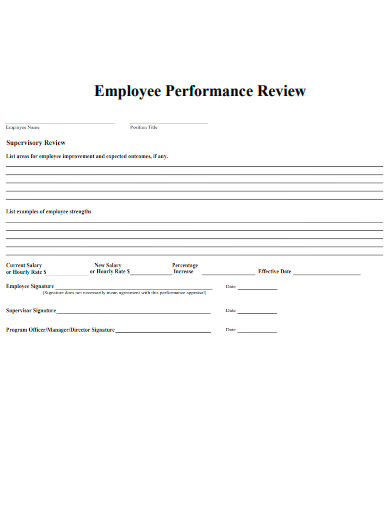
aging.ks.gov
14. Employee Feedback Performance Review
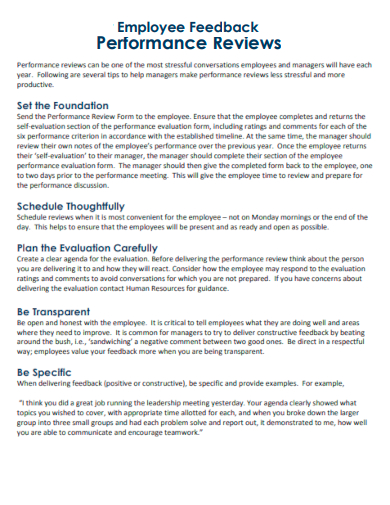
hr.uconn.edu
15. Classified Employee Performance Review
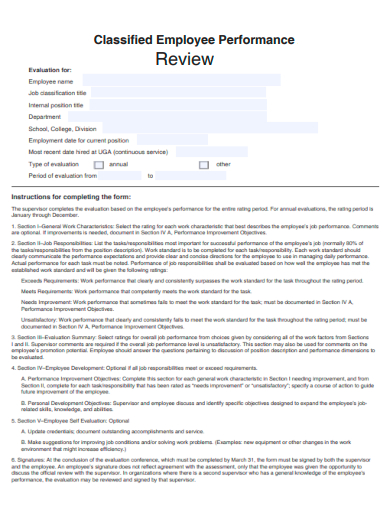
busfin.uga.edu
16. Performance Review Workshop for Employees
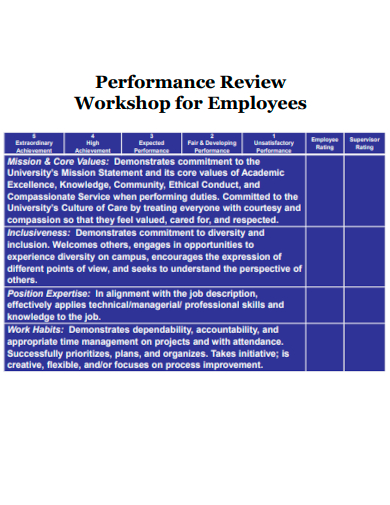
sandiego.edu
17. Employee Performance Review and Development
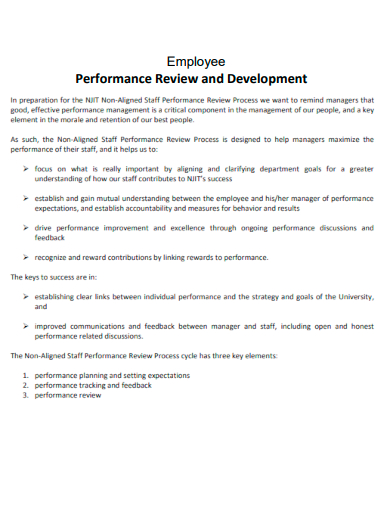
njit.edu
18. Performance Review for Manager and Employee
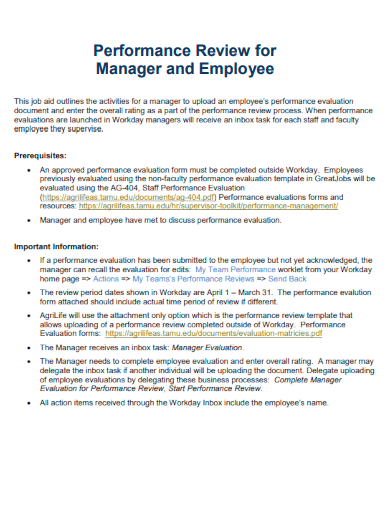
tamu.edu
19. Creative Employee Performance Review
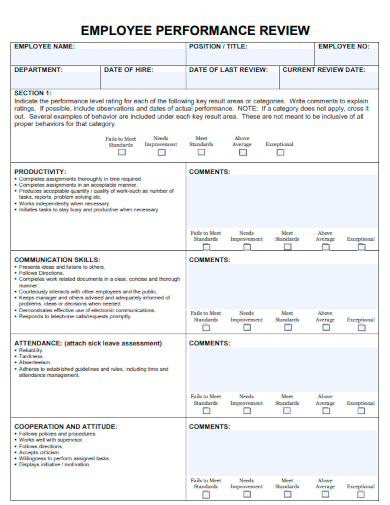
effinghamcounty.org
20. Employee Performance Appraisal Review Checklist
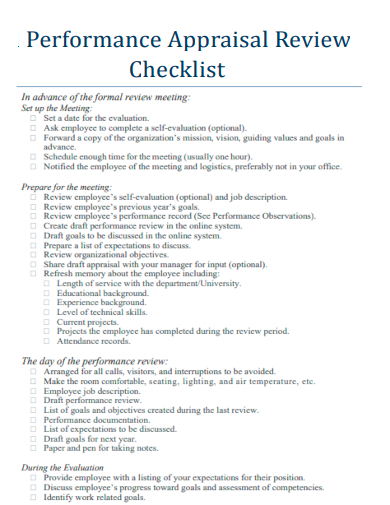
uillinois.edu
21. Employee Performance Self Assessment Review
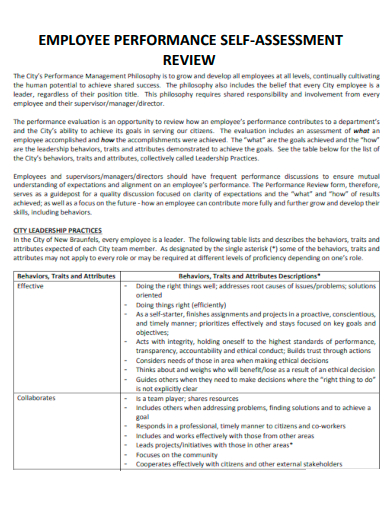
nbtexas.org
22. Sample Employee Performance Review
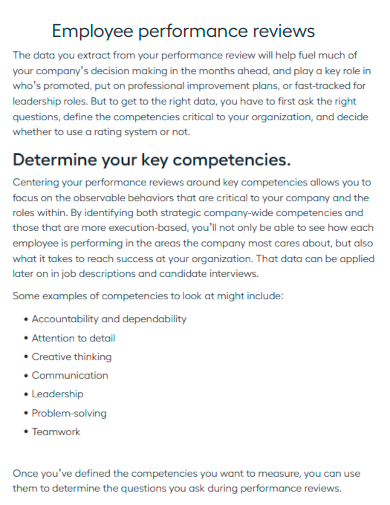
lattice.com
23. Standard Employee Performance Review
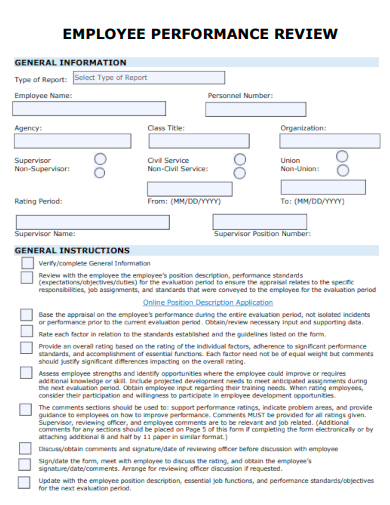
oa.pa.gov
What is an Employee Performance Review?
An employee performance review, also known as a performance appraisal or evaluation, is a systematic process that involves assessing an employee’s job performance, skills, competencies, and contributions to the organization. It serves as a formal evaluation mechanism to provide feedback, set goals, identify areas for improvement, and recognize achievements. Performance reviews often encompass factors such as smart objectives, task performance reports, soft and hard skills, work experience, career goals, and aligning employee goals with organizational objectives.
How to Conduct an Employee Performance Review
Implementing a well-designed performance review plan is vital to unlocking the full potential of your workforce. By following a structured approach, you can ensure fair and objective evaluations, provide meaningful feedback, nurture employee growth, and effectively manage performance.
Step 1: Preparation
Begin by reviewing the employee’s job description, objectives, and performance expectations. Gather relevant data, such as previous performance appraisals, task performance reports, and any other documentation related to the employee’s work.
Step 2: Setting the Stage
Schedule a meeting with the employee to discuss the upcoming performance review. Create a positive and open environment, emphasizing the purpose of the review as a collaborative opportunity for growth and development.
Step 3: Evaluation and Feedback
Assess the employee’s performance based on predetermined criteria. Provide specific examples to support your evaluation. Offer constructive feedback that highlights strengths and areas for improvement, focusing on actionable steps the employee can take to enhance their performance.
Step 4: Goal Setting
Work together with the employee to set smart objectives for the upcoming performance period. Ensure that goals are specific, measurable, achievable, relevant, and time-bound. Align these goals with the employee’s career aspirations and organizational objectives.
Step 5: Follow-up and Support
Regularly check in with the employee to monitor progress and offer support. Provide ongoing feedback and guidance, addressing any challenges that may arise. Encourage open communication and create a supportive environment that fosters continuous learning and development.
FAQs
What are SMART objectives, and why are they essential in performance reviews?
SMART objectives are specific, measurable, achievable, relevant, and time-bound goals that help define and track an employee’s progress and performance. Incorporating SMART objectives in performance reviews provides clarity, enables focused evaluation, and facilitates alignment of individual efforts with organizational targets, leading to enhanced productivity and growth.
How does a task performance report contribute to the employee performance review process?
A task performance report is a comprehensive assessment that highlights an employee’s accomplishments, challenges, and areas for improvement related to specific tasks or projects. It provides a tangible record of performance, aids in identifying skill gaps, and offers insights for coaching and development opportunities, thereby enriching the employee’s overall performance.
Why is it crucial to evaluate both soft and hard skills in performance reviews?
Soft skills, including communication, teamwork, problem-solving, and adaptability, complement hard skills, which encompass technical expertise and job-specific competencies. Evaluating both skill sets in performance reviews ensures a holistic assessment of an employee’s capabilities, enabling organizations to foster a well-rounded workforce capable of thriving in diverse situations.
Employee performance reviews serve as catalysts for growth, enabling organizations to harness their workforce’s potential effectively. By providing a platform for open communication, setting smart objectives, evaluating task performance, and considering both soft and hard skills, these reviews empower employees
22+ Employee Performance Review Examples to Download

Employee performance reviews play a crucial role in assessing and enhancing the productivity and growth of an organization’s workforce. By providing valuable feedback, these reviews foster professional development, align employee goals with organizational objectives, and drive overall performance. In this article, we will explore the concept of auxiliary verbs, guide you through the process of conducting an effective employee performance review, address common FAQs, and conclude with a fresh perspective on the transformative power of this essential management tool.
1. Quarterly Employee Performance Review

Details
File Format
Google Docs
MS Word
Size: 108 KB
2. Restaurant Employee Performance Review Form

Details
File Format
Google Docs
MS Word
Apple Pages
Outlook
Size: 58 KB
3. Mid-year Employee Performance Review

Details
File Format
Google Docs
MS Word
Size: 98 KB
4. Annual Employee Performance Review

cpp.edu
Details
File Format
PDF
Size: 182 KB
5. Formal Employee Performance Review

clarion.edu
Details
File Format
PDF
Size: 259 KB
6. Employee Performance Review Fill-in-the-Blank Activity

lawrence.edu
Details
File Format
PDF
Size: 710 KB
7. Employee Effective Performance Review

hr.iastate.edu
Details
File Format
PDF
Size: 409 KB
8. Employee Performance Review Instructions

angelo.edu
Details
File Format
PDF
Size: 18 KB
9. Employee Performance Review Discussion

srpln.msstate.edu
Details
File Format
PDF
Size: 166 KB
10. Employee Performance Review Process

wvu.edu
Details
File Format
PDF
Size: 116 KB
11. Basic Employee Performance Review

vassar.edu
Details
File Format
PDF
Size: 500 KB
12. Employee Performance Review Evaluation

dane.com
Details
File Format
PDF
Size: 34 KB
13. Modern Employee Performance Review

aging.ks.gov
Details
File Format
PDF
Size: 21 KB
14. Employee Feedback Performance Review

hr.uconn.edu
Details
File Format
PDF
Size: 148 KB
15. Classified Employee Performance Review

busfin.uga.edu
Details
File Format
PDF
Size: 177 KB
16. Performance Review Workshop for Employees

sandiego.edu
Details
File Format
PDF
Size: 1 MB
17. Employee Performance Review and Development

njit.edu
Details
File Format
PDF
Size: 596 KB
18. Performance Review for Manager and Employee

tamu.edu
Details
File Format
PDF
Size: 210 KB
19. Creative Employee Performance Review

effinghamcounty.org
Details
File Format
PDF
Size: 74 KB
20. Employee Performance Appraisal Review Checklist

uillinois.edu
Details
File Format
PDF
Size: 71 KB
21. Employee Performance Self Assessment Review

nbtexas.org
Details
File Format
PDF
Size: 262 KB
22. Sample Employee Performance Review

lattice.com
Details
File Format
PDF
Size: 1 MB
23. Standard Employee Performance Review

oa.pa.gov
Details
File Format
PDF
Size: 691 KB
What is an Employee Performance Review?
An employee performance review, also known as a performance appraisal or evaluation, is a systematic process that involves assessing an employee’s job performance, skills, competencies, and contributions to the organization. It serves as a formal evaluation mechanism to provide feedback, set goals, identify areas for improvement, and recognize achievements. Performance reviews often encompass factors such as smart objectives, task performance reports, soft and hard skills, work experience, career goals, and aligning employee goals with organizational objectives.
How to Conduct an Employee Performance Review
Implementing a well-designed performance review plan is vital to unlocking the full potential of your workforce. By following a structured approach, you can ensure fair and objective evaluations, provide meaningful feedback, nurture employee growth, and effectively manage performance.
Step 1: Preparation
Begin by reviewing the employee’s job description, objectives, and performance expectations. Gather relevant data, such as previous performance appraisals, task performance reports, and any other documentation related to the employee’s work.
Step 2: Setting the Stage
Schedule a meeting with the employee to discuss the upcoming performance review. Create a positive and open environment, emphasizing the purpose of the review as a collaborative opportunity for growth and development.
Step 3: Evaluation and Feedback
Assess the employee’s performance based on predetermined criteria. Provide specific examples to support your evaluation. Offer constructive feedback that highlights strengths and areas for improvement, focusing on actionable steps the employee can take to enhance their performance.
Step 4: Goal Setting
Work together with the employee to set smart objectives for the upcoming performance period. Ensure that goals are specific, measurable, achievable, relevant, and time-bound. Align these goals with the employee’s career aspirations and organizational objectives.
Step 5: Follow-up and Support
Regularly check in with the employee to monitor progress and offer support. Provide ongoing feedback and guidance, addressing any challenges that may arise. Encourage open communication and create a supportive environment that fosters continuous learning and development.
FAQs
What are SMART objectives, and why are they essential in performance reviews?
SMART objectives are specific, measurable, achievable, relevant, and time-bound goals that help define and track an employee’s progress and performance. Incorporating SMART objectives in performance reviews provides clarity, enables focused evaluation, and facilitates alignment of individual efforts with organizational targets, leading to enhanced productivity and growth.
How does a task performance report contribute to the employee performance review process?
A task performance report is a comprehensive assessment that highlights an employee’s accomplishments, challenges, and areas for improvement related to specific tasks or projects. It provides a tangible record of performance, aids in identifying skill gaps, and offers insights for coaching and development opportunities, thereby enriching the employee’s overall performance.
Why is it crucial to evaluate both soft and hard skills in performance reviews?
Soft skills, including communication, teamwork, problem-solving, and adaptability, complement hard skills, which encompass technical expertise and job-specific competencies. Evaluating both skill sets in performance reviews ensures a holistic assessment of an employee’s capabilities, enabling organizations to foster a well-rounded workforce capable of thriving in diverse situations.
Employee performance reviews serve as catalysts for growth, enabling organizations to harness their workforce’s potential effectively. By providing a platform for open communication, setting smart objectives, evaluating task performance, and considering both soft and hard skills, these reviews empower employees

